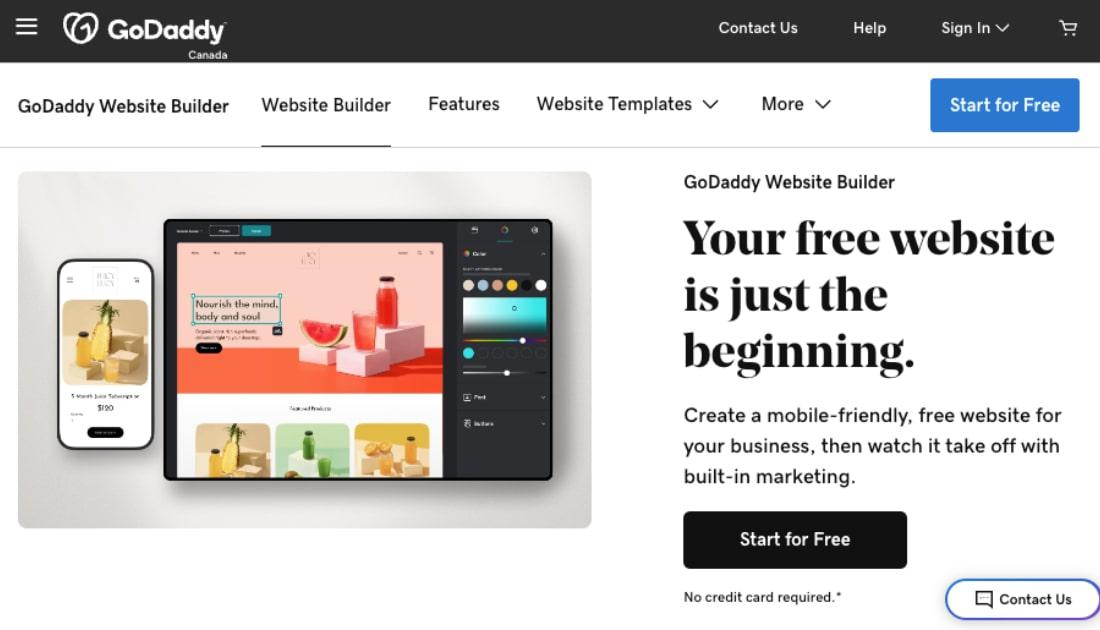When it comes to finding things on the web, the old real estate adage applies: location, location, location. But in this case, the place you need to be is on the Google search results page, since this is where Canadians look for local goods and services. Businesses that sell locally need to have a local SEO strategy to ensure their customers know where to find them, and what they do.
Why local SEO matters to your business
While the internet is global, a significant chunk of web searches are from potential customers trying to find products and services nearby.
The pandemic has made it more important than ever that local businesses come up when locals search for their products and services.
As mobile devices allow us to find information on the go, they are a critical part of our local buying habits. This is why Google favors local websites — because so many people are looking for them.

Photo: freestocks.org on Unsplash
It's now critical for all businesses to have a keyword strategy — even non-technical businesses like:
- Grocers
- Restaurants
- Dry cleaners
- Auto repair shops
Your business website should be treated as another storefront; an avenue to attract new customers.
Editor’s note: Don’t have a website yet? Launch one today with our risk-free trial. Our Website Builder makes it easy to promote your business on Google My Business, Facebook and Instagram. It even offers smart advice to help you grow.
Get more local customers with our 5-step sequence
While we are going to talk a lot about search engine optimization, let's face it — we're talking about Google. Although Google doesn't handle 100 percent of the global searches (yet), for most businesses it’s a good place to start. You should also know that SEO involves adding select words to your web pages. Once you know which words to use, it's really quite simple.
1. Check in with Google My Business
The first step in making local SEO work for your business is making sure that Google knows:
- Who you are
- What product or service you provide
- Where you are located
- How to contact you
- What your customers think of you
To make sure they do, visit the Google My Business page to see if they already have a business listing for you.
Google might already have a listing for you. But it might not be correct.
Make sure your business listing is complete and correct including contact information (email, phone number), address, hours of operation, business category and business name. Add photos of your business location, as well as your products and services.
2. Choose a .ca domain name
.ca is the official country code top level domain for Canada. Using a .ca domain for your business website will help your site rank better in Canada, as Google knows the information is more relevant to Canadians. It will also earn the immediate trust of Canadians, since they can see at-a-glance you're located in Canada.
To register a .ca domain name, you must be:
- Canadian citizen
- Permanent resident
- Corporation
To amplify the local SEO value of your domain name, consider including your keywords in it. For example, “BestCanmoreDonuts.ca” would be an excellent choice for a donut shop in Canmore.
See if the .ca domain name you want is available now
3. Get to know your customers

Photo: Josh Edgoose on Unsplash
When adjusting your website text and image titles for local SEO, don't think about what you would like it to say, think about what your ideal customer wants to know.
One way to start is by identifying your target market. Basically you need to decide what type of person is most likely to buy from you and build your website to match.
What is the problem you can help them solve? What values matter most to them in choosing a solution? Price? Quality? Find out these things and you will be closer to knowing your customer.
4. Research your keywords
Once you better understand your customer, it's time to do some local SEO keyword research.
SEO keywords are words and phrases that both describe what your business is all about, and closely match the words potential customers use when searching for products and services like yours. As a business owner, it is critical to to understand how your customers describe what you do.
If you sell bespoke pastry rings, but your customers call them donuts, it's a good idea to use “donuts” as a keyword.
Start with a list of words that reflect your business and the likely phrases people will use when searching for it. If you run a Thai restaurant in Ottawa you might start with:
- Thai food Ottawa
- Pad Thai Ottawa
- Authentic Thai Ottawa
From there, use Google Ads Keyword Planner or Ahrefs to identify which of them get the highest amount of traffic. This tool is also helpful in identifying other good keywords you might not have thought of.
How to add keywords to your website
Choosing one primary local SEO keyword for each page on your website, add it to the:
- Page title, the first paragraph and at least one subhead
- Meta description
- Header tags
- URL of each of your pages.
- Text on that page
You should remember that you are writing for humans, not search engine robots, so try to work your keywords into the body text in a natural way (aim to include your keyword once for every 100 words on the page).
In the bad old days, businesses would stuff their pages full of keywords to the point of being unreadable to the average human. Don't do this.
Google doesn't like keyword stuffing and neither do readers.
Remember, this doesn't just apply to blog posts and web pages but to all written and video content you create. So your keywords must be added to videos descriptions, case studies and social posts as well.
If this sounds like more than you can handle, it might make sense to call in the pros. Handing SEO off to a trusted partner will free you to focus on running your business.
Pro tip: Once you have your keywords figured out, put them somewhere safe so you can use them whenever you're creating new web content.
5. Make your website easy to use
One thing to remember is that Google is ranking your website, not your business. You could be selling the most popular hand-knitted beanies in town, but if your website sucks, you’re limiting the growth of your business. Investing the time in making sure your website is easy to use is critical.
A few quick things to look for:
Is your website easy-to-use on mobile devices?
Google penalizes websites that are not mobile optimized by dropping them down in search rankings. More importantly, more than half of all web traffic is now mobile. So if you don't have a mobile-friendly site you are losing customers.
Do your web pages load quickly?
Slow websites are also penalized in Google's ranking, and even if customers do find your site, they're likely to get frustrated and leave. To resolve this, you might need to compress your photos and videos or upgrade your web hosting.
Are things easy-to-find?
Can your customers easily find your menu, price list, hours of operation and product or service descriptions? Is it obvious how to schedule an appointment or make a purchase? All these should be apparent at a glance.
Is it protected by an SSL certificate?
Does your website have SSL encryption? Again, Google penalizes websites without it, adding a “Not Secure” tag to your website’s URL in its listings. How many people do you think will click on a listing that says "Not Secure"?
Now share widely

Photo: Tyler Nix on Unsplash
One of the ways that Google decides how to rank your website is by seeing if others like it. There are a few ways Google can tell if people like your content:
- They visit it often (page views)
- Other websites link to it (inbound links)
- They share it on social media (social shares)
So don't forget to share it widely through social media, email newsletters, review websites and other opportunities. Find out where your customers hang out and use those channels to bring them to your website.
SEO should be a habit for Canada’s local businesses

The most important thing to remember is that local SEO is not a one-time thing. It is an ongoing practice to make sure people can find your business. Search engines are designed to show users the most relevant, local information possible to help them make buying decisions.
By following the steps above you can get a head start on the competition by making sure your business gets in front of as many potential customers as possible. As for making the best pad Thai in the city? Well that’s up to you.








